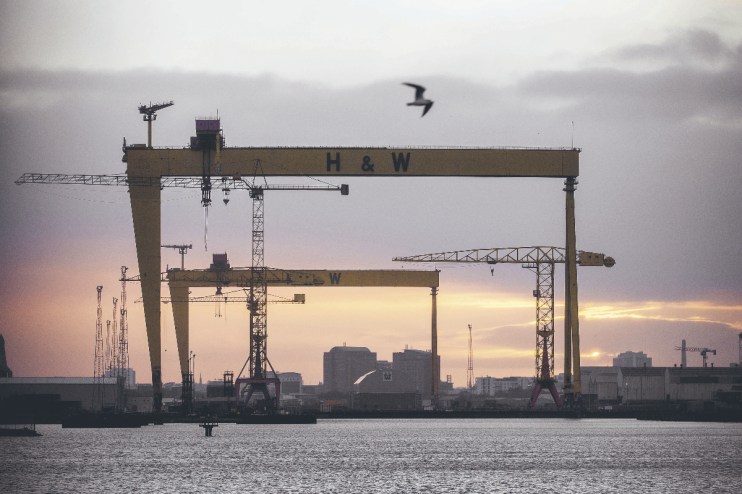Harland and Wolff: Titanic shipbuilder staves off collapse after securing emergency £20m loan

Crisis-hit Harland and Wolff has secured an additional £19.5m from its lenders as it battles to stave off administration.
The Belfast shipyard, which built the Titanic, said it had entered into agreements with its existing US lenders to increase its credit facility by $25m (£19.5m), bringing the total to $140m.
It comes after the Financial Times reported the firm had been holding last ditch talks with Wall Street backer Riverstone Credit Partners throughout the last fortnight.
It is thought a condition of the agreement was the departure of John Wood, chief executive, who left on 19 July following the new Labour government’s decision to not provide a £200m loan guarantee seen as critical to the company’s survival. The termination of Wood’s contract was confirmed today.
Harland and Wolff has appointed Rothschild and Co as financial advisers as it assesses its options.
“We are grateful to our lenders in continuing their funding commitment to support Harland & Wolff Group’s ongoing stabilisation and long-term strategy objectives. We also look forward to working with the very experienced team from Rothschild & Co to help us achieve that objective,” Malcolm Groat, Chairman of Harland & Wolff, said.
News of the deal will provide some relief to the 1,500 workers employed by the group across its four sites in Belfast, Devon and Methil and Arnish in Scotland.
Matt Roberts, National Officer at the GMB Union, said he was “pleased Harland and Wolff’s financing has been confirmed and received. Now the company can focus on its core business and what we know GMB members can deliver.”
“Harland and Wolff’s four core sites across the UK remain crucial to our domestic sovereign capabilities in shipbuilding and renewables fabrication.”
However, the announcement also included a decision from the shipyard to withdraw its Scilly Isle ferries service, which runs between the islands and Penzance.
In a statement, Harland said it would be “winding down business lines that are deemed to be non-core for the company” as it looks to cut costs.
The new Scilly Ferries service was set to run its first trips on 22 July, but kick-off was delayed due to Harland’s financial issues.
City A.M. reported on Monday that the group was also at risk of losing a separate £120m contract to develop a port in the Falkland Islands capital.
Groad said: “It is regrettable that we have taken the tough decision to terminate the fast ferry, but we need to focus our energies and resources in continuing to grow the core business across our four delivery centres.
“This decision aligns with and brings us back to our fundamental five markets and six services strategy. Our ferry service team will be working closely with passengers and other counterparties to ensure a smooth transition out of this business.”
Aim-listed Harland’s shares have been suspended since the beginning of July, when it failed to deliver audited accounts. Unaudited results revealed an operating loss of £24.7m over 2023.